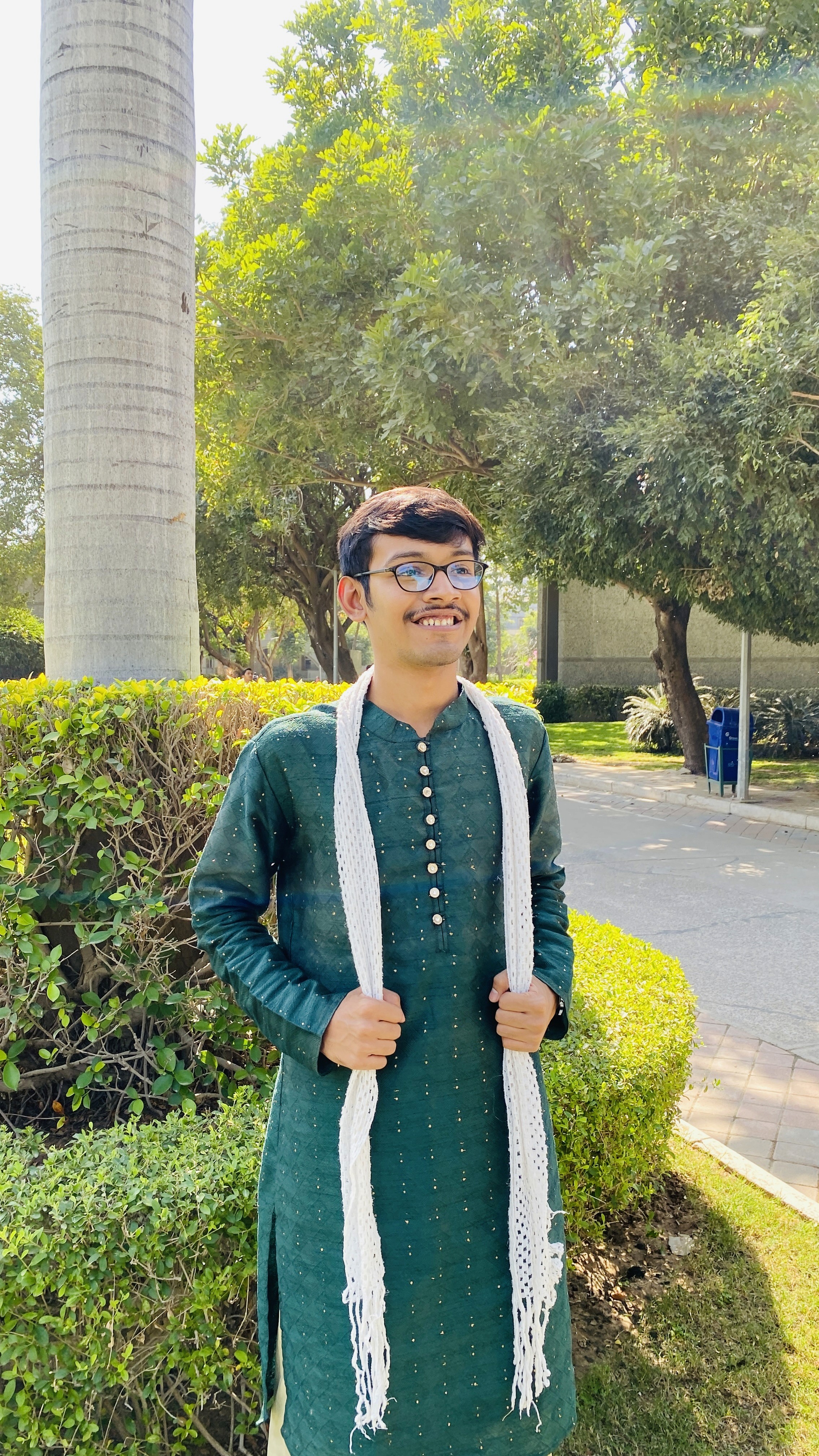March | 2024
#Open-Source Programs #Education #Developers
Starting a journey into the arena of open source contributions provides an unequaled chance for people of all skill levels to get real-world software development experience from the comfort of their own homes. Even those without industry experience can benefit from engaging in this collaborative atmosphere. By participating in open source projects, you will acquire insight into team cooperation, huge codebase management, and the rewarding experience of producing code that serves a worldwide community.
Contributing to open source allows you to test and improve your abilities, learn new things, and interact with people from all over the world. This collaborative approach promotes the generation of high-quality code while also cultivating an environment of continual learning and development. Accept the world of open source and open up a world of possibilities for personal and professional development, all while making a meaningful impact in the lives of people all over the world.
The essence of open source lies not in the code itself, but in the vibrant community that forms around it. Projects with strong communities have greater longevity and higher adoption rates. To ensure your project's success, actively cultivate and engage with the community you wish to build.
This article delves into a range of programs designed for university students and working professionals to engage in open source projects. Exploring these opportunities will provide valuable insights for those eager to contribute to the world of open source. Let's begin our journey into this exciting realm of collaboration and innovation.
Google Summer of Code, a 17-year-old effort from Google, promotes open-source software creation among university students. The initiative involves organizations with mentors that apply to Google and, if chosen, approve student applications. It's worth noting that participants aren't Google employees or interns; instead, they work with their selected company. This paid program in India runs from February to November and pays a stipend of 1500 USD for medium-sized projects and 3000 USD for large-sized projects. It provides students with essential experience in open-source programming and cooperation.
Timeline: March-November
Established in 2013, Major League Hacking (MLH) has since evolved into a thriving global community of student coders. Among its initiatives, the MLH Fellowship stands out as a 12-week remote program where students work on Open Source projects, aligning their interests with broader industry needs. The program offers three main tracks: software engineering, open source, and production engineering, allowing students to hone essential skills like documentation, communication, and best practices in open source. To ensure a successful application, prospective participants should verify their eligibility and fulfill the qualifying criteria.
They offer three Fellowship Tracks:
Software Engineering
Site Reliability Engineering
Web3 Engineering
Timeline: May-August
Timeline: June-September
Generally, as a developer you need to work Monday-Friday and 20 hr/week.
A critical component of any open-source project is high-quality documentation. Google Season of Docs addresses this need by bringing together technical writers and open-source organizations to collaborate on documentation for open-source projects. Participants have the unique opportunity to learn from seasoned professionals while contributing to the open-source community. Moreover, Google provides compensation for the technical writers involved. To be eligible for Google Season of Docs, applicants must be at least 18 years old at the time of registration, making it an engaging and valuable experience for students and professionals alike.
Timeline: March-December
Hacktoberfest, a widely recognized open-source initiative hosted by Digital Ocean, welcomes global participation. To join, individuals must submit at least four quality pull requests, which can earn them the opportunity to plant a tree or receive a limited-edition t-shirt. The absence of a selection criterion makes this program accessible and ideal for beginners in the open-source community. By contributing to participating projects on GitHub, participants gain practical experience with Git and GitHub, ensuring that even small contributions offer valuable learning opportunities.
Timeline: October
Outreachy is an exceptional program that promotes diversity in the open-source community by offering remote internships to a select group of students from around the world. These three-month internships focus on various aspects of open source projects, such as programming, documentation, and marketing. The application process emphasizes applicants' genuine interest in the program, their goals, and their commitment to fostering diversity.
As a paid internship, Outreachy provides a stipend of $7000 USD, making it a highly competitive and sought-after opportunity. Organized by the Software Freedom Conservancy, Outreachy takes place twice a year, from May to August and December to March. While familiarity with open source can enhance one's chances of being selected, the program also offers opportunities for non-technical individuals.
Timeline: May-August
Timeline: December-March
Since 2013, the KDE community has hosted an annual outreach program called Season of KDE (SoK), which is comparable to yet distinct from Google Summer of Code. SoK provides a platform for contributors to engage in both code and non-code projects that enrich the KDE ecosystem. Over the years, participants have made significant strides, including the development of new software features, enhancements to the KDE Continuous Integration system, creation of statistical reports for developers, porting of KDE Applications, and documentation. This comprehensive article delves into the various aspects of SoK, offering valuable insights for potential participants and highlighting its impact on the broader open-source community.
Timeline: January-May
FOSSASIA, a non-profit organization dedicated to fostering open-source innovation, supports developers and makers by providing resources and opportunities to contribute to free and open-source technologies. Among its initiatives, FOSSASIA Codeheat stands out as a unique coding contest that brings together mentors from diverse backgrounds, including developers, professors, and contributors. This program, structured in two-month periods, recognizes and celebrates the achievements of its participants at the end of each cycle. This article explores the benefits of participating in FOSSASIA's Codeheat and highlights its role in cultivating a thriving open-source community.
Timeline: December-April
Google Summer of Earth Engine is an exciting research program designed for Indian university students and researchers, providing a unique opportunity to collaborate with leading research organizations in environment, conservation, water resources, and agriculture. This three-month summer program offers participants the chance to work on meaningful projects using Google Earth Engine, under the guidance of dedicated mentors.
Modeled after the Google Summer of Code program, the Google Summer of Earth Engine program aims to create impactful engagements and expose students to real-world research challenges involving remote sensing (RS) and geographic information systems (GIS) data.
Participants receive a certificate of recognition and special Earth Engine swag upon completion, as well as the chance to present their work at a Google summit. This initiative not only supports the growth of students but also gives back to non-profit partners by offering access to top student talent, Google technology, and financial support.
Timeline: March-August
Organized by Open Knowledge Belgium, the Open Summer of Code program brings together students from diverse backgrounds to collaborate on open-source innovation projects provided by various partners, including organizations, companies, and governments. Although the program is based in Belgium, students from other countries may also apply, provided they meet the Belgian student work regulations.
Open Summer of Code offers a unique platform for students to gain real-world experience in open-source development, while fostering a sense of community and innovation in the tech industry. This article explores the opportunities offered by the program and provides insights into the application process for interested candidates.
Timeline: April
GirlScript Summer of Code is a three-month-long open-source program organized by the GirlScript Foundation, designed to introduce beginners to the world of open-source development. Launched in 2018, the program fosters diversity and inclusivity by providing participants with the opportunity to contribute to various projects under the mentorship of experienced professionals. This initiative not only equips participants with essential skills in open-source development but also offers exciting rewards and opportunities to top performers. In this article, we delve into the details of the GirlScript Summer of Code program and explore its potential benefits for aspiring developers.
Timeline: May-August
The Linux Foundation Mentorship Program is a valuable initiative designed to equip developers, particularly those new to open source, with the skills and resources needed to contribute effectively to open source communities. By connecting mentees with experienced contributors, the program creates a supportive learning environment that prepares participants for internship and job opportunities upon graduation.
Current Linux Foundation Mentorship Programs:
Cloud Native Computing Foundation (CNCF)
GraphQL
Hyperledger
LF Networking
Linux Kernel
OpenHPC
Open Mainframe Project
RISC-V
Summer of Bitcoin is a worldwide online summer internship program that introduces university students to the world of bitcoin open-source development and design. Over the course of 12 weeks, participants contribute to open-source bitcoin projects under the guidance of experienced Bitcoin developers and designers, while earning a stipend in BTC.
As a full-time commitment, the Summer of Bitcoin program demands the complete focus of its interns. Students are advised against engaging in other work or activities during the program. Upon successful completion, participants receive a $3,000 stipend in BTC, further incentivizing their dedication to the program.
Key advantages of the Summer of Bitcoin program include:
In-depth understanding of Bitcoin: The program offers a unique opportunity to learn about Bitcoin, a decentralized digital currency that is immune to inflation and political manipulation, and its superiority over traditional fiat currencies.
Networking opportunities: Interns have the chance to connect with industry leaders and professionals in the blockchain space, potentially opening doors to job opportunities with renowned Bitcoin companies.
Expert mentorship: Students can receive guidance and mentorship from a diverse group of experienced Bitcoin designers and developers, helping them gain valuable insights and hands-on experience in the field.
In addition to the aforementioned programs, numerous open-source competitions and University SoC/WoC initiatives offer valuable platforms for students and developers to engage with open-source projects. To access detailed information on these opportunities, please visit the link - Other Programs. These resources will further support your journey into the world of open-source development and collaboration.
"Vision is not what your eyes see, but an image that your brain comprehends."
GoodBye🙏



